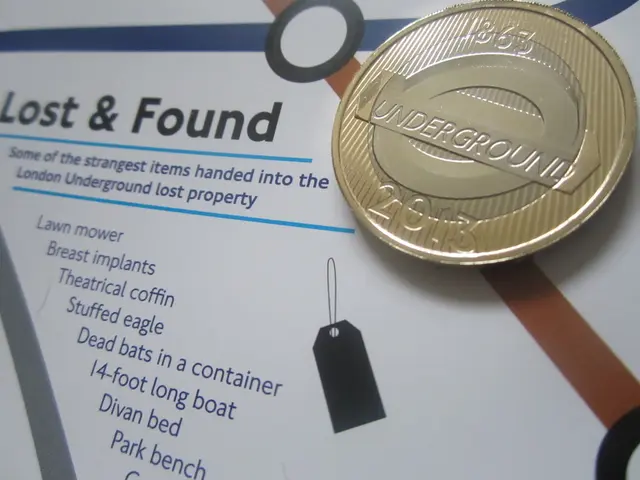World Environment Day 2025: The Expensive Transition Towards Eco-Friendliness
In our rapidly growing world, the trend is undeniably leaning towards sustainability and reducing carbon footprints. Major corporations are racing to rebrand themselves as eco-friendly, while social media influencers are preaching the gospel of zero waste living. But there's a peculiar paradox at play. The same folks advocating for less waste are driving fuel-guzzling SUVs, receiving packages wrapped in plastic from Amazon every day, and feeding their desire for convenience over the environment.
Fashion's ironic stitch
Fast fashion brands like Zara and H&M boast 'Conscious Collections', making up less than one percent of their total production. Meanwhile, they're manufacturing environmentally harmful clothing at breakneck speed. In the fashion industry, thrift stores are becoming a popular alternative, but the high price of eco-friendly clothing means that consumers with lower incomes are being systematically priced out. The result? Environmentalism evolving into a luxury good.
Each year, the average person discards 70 pounds of clothing, most of which ends up in landfills. Global textile waste reaches approximately 92 million tonnes annually, with less than 15% being recycled. It's time for urgent action, but the numbers paint a bleak picture.
Food waste: the ugly truth
While well-off consumers debate the merits of sustainable packaging and zero-waste lifestyles, food waste is a grim reality. Over 19 percent of food production is wasted, with households accounting for 60% of it. To put it into perspective, the typical American family discards $1,500 in food each year, while families in developing countries often spend that much annually on food.
Conventional food choices are cheap but unsustainable, while organic produce is 20-40% more expensive. This creates a morbid hierarchy where environmental responsibility becomes a symbol of status. Meanwhile, households managing tight budgets at discount retailers are unintentionally portrayed as environmental wrongdoers.
Packaging: the wasteful frontier
Packaging is another significant contributor to environmental waste. Order a small charger from Amazon, and it comes in a shoe-sized box, with multiple layers of plastic and bubble wrap. The package itself will weigh more than the product. The average individual apparently receives over 1300 packages each year, with 40% of this packaging being unnecessary for product safety.
In food, packaging paints a different yet equally absurd picture. Seven leading supermarkets in the UK produce 60 billion plastic packaging items annually, equating to 2000 items per household. But here's the irony—a lot of this packaging is too large for single-person households, the fastest-growing demographic in developed countries.
The car industry's towering carbon footprint
Modern-day environmental paradoxes are best understood by our obsession with luxury SUVs like the Thar. The transport sector in India, excluding international aviation and shipping, emits 272 million tonnes of CO2. In the U.S., SUVs and trucks made up 80% of new vehicle sales in 2023. Despite talk of reducing carbon footprints, the elite upper class continues to drive these fuel-guzzling vehicles. Even hybrids and electric SUVs perpetuate the problem, as they're bigger, heavier, and consume more resources.
If genuine sustainability is to thrive, being eco-friendly should be a fundamental right, not a privilege. Instead of being elitist or expensive, sustainable products and carbon-neutral items must be affordable for the masses. Closing the divide between awareness and action necessitates more than just symbolic acts; it calls for systemic change and an inclusive approach.
Enrichment Data:
Challenges and Contradictions
1. Cost and accessibility: Eco-friendly products are often more expensive, creating barriers for consumers despite growing environmental awareness.
2. Consumer demand vs. supply constraints: While demand for sustainable goods rises, supply may not meet consumer needs, leading to issues of availability and affordability.
3. Information overload and greenwashing: With more access to information, consumers may be misled by greenwashing, complicating genuine sustainability efforts.
4. Psychological barriers: Habit, convenience, and cost often prioritize over environmental impact, reflecting behavioral inertia and entrenched consumption habits.
5. Corporate accountability and incentives: Business practices prioritizing growth over long-term sustainability goals can conflict with consumer demands for accountability.
6. Overconsumption vs. sustainability: Consumer culture promoting overconsumption is at odds with genuine sustainability, requiring less consumption and sustainable living.
7. Redefining success and happiness: Mainstream consumer culture equates happiness and success with accumulation, while the anti-consumerist movement highlights the importance of non-material values.
8. Green consumerism vs. systemic change: While green consumerism reflects growing awareness, it may obscure the need for broader systemic changes.
9. Individual action vs. collective responsibility: Focusing on individual choices may neglect the need for larger, systemic transformations, such as policy change and business practice reform.
These challenges and contradictions highlight the complexity of achieving genuine sustainability in modern consumerism. While progress is being made through increased awareness and green incentives, systemic and cultural shifts are necessary for lasting impact.
- Fast fashion brands, despite promoting 'Conscious Collections,' continue to produce environmentally harmful clothing at an alarming rate, while the high prices of eco-friendly clothing price out consumers with lower incomes.
- Food waste is a pressing issue, with over 19% of food production being wasted, and households accounting for 60% of it, while households managing tight budgets at discount retailers are unintentionally portrayed as environmental wrongdoers due to their food choices.
- Packaging contributes significantly to environmental waste, as Amazon packages often come with multiple layers of plastic and bubble wrap, and seven leading supermarkets in the UK produce 60 billion plastic packaging items annually, with a lot of it being too large for single-person households.
- The car industry, especially the luxury SUV market, emits a towering carbon footprint, with SUVs and trucks making up 80% of new vehicle sales in the U.S. in 2023, and even hybrids and electric SUVs perpetuating the problem due to their size and resource consumption.
- The trend of major corporations rebranding themselves as eco-friendly highlights the peculiar paradox at play, as many of the same individuals advocating for environmentalism drive gas-guzzling SUVs, receive daily Amazon packages wrapped in plastic, and prioritize convenience over the environment.
- The fashion, food, and transportation industries are not the only sectors contributing to climate change; the retail and technology industries, as well as sports and weather events, are also affected by unsustainable practices and resource consumption.
- Achieving genuine sustainability requires urgent action, but also demands systemic change and an inclusive approach, making eco-friendly products affordable for all, reducing information overload and greenwashing, and addressing behavioral and psychological barriers to environmentalism.








